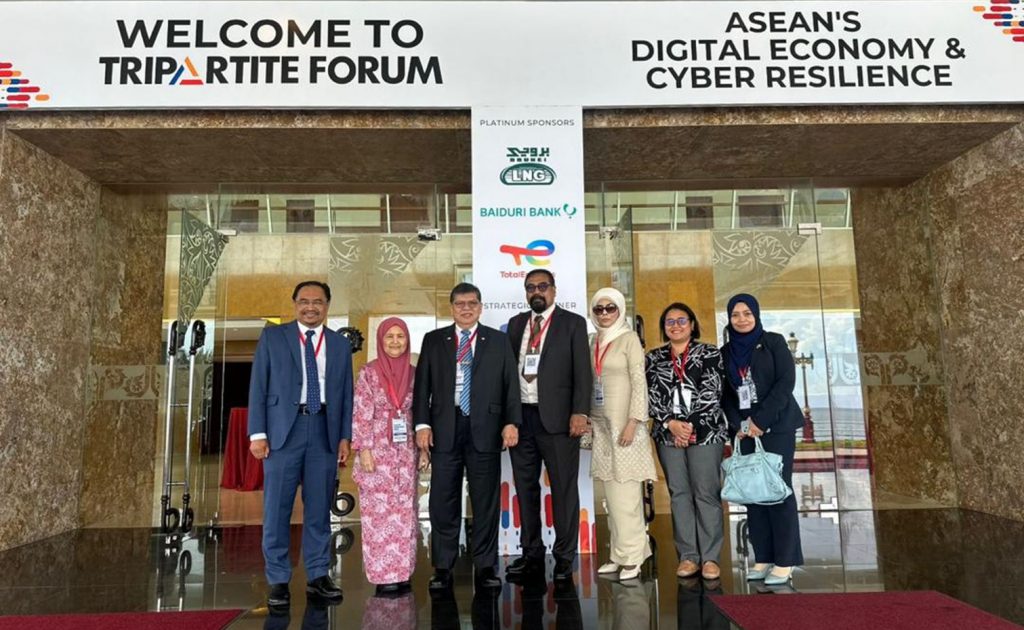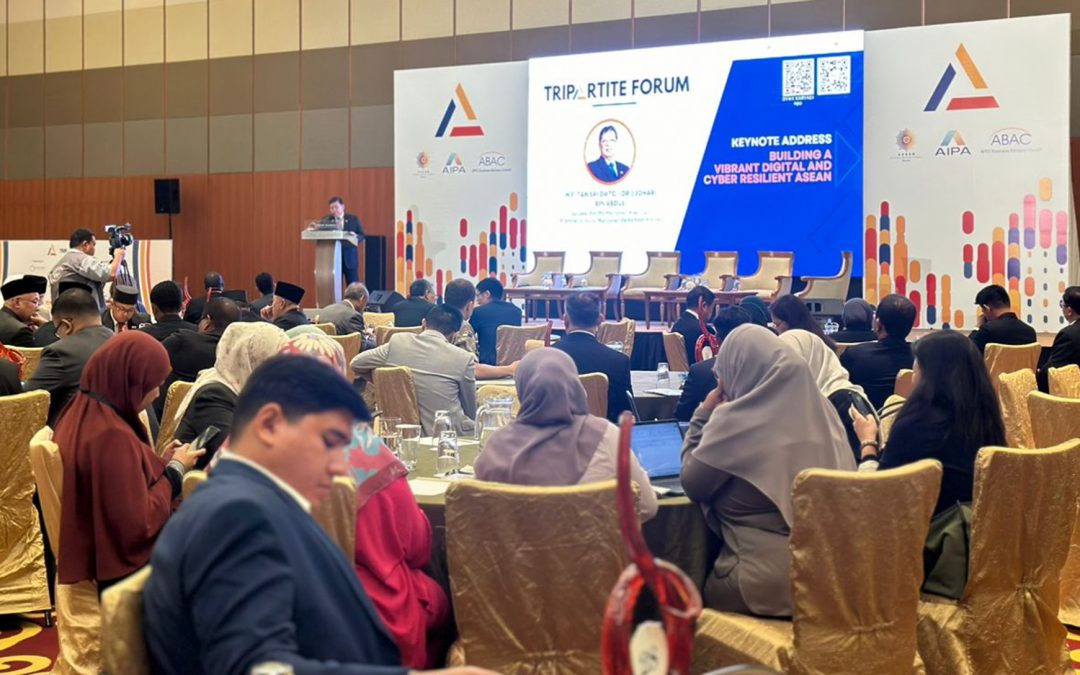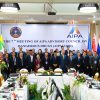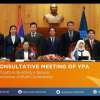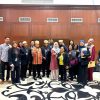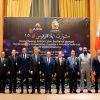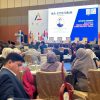10 June 2024 – Bandar Seri Begawan, Brunei Darussalam. The 2024 Tripartite Forum, co-hosted by the ASEAN Inter-Parliamentary Assembly (AIPA), ASEAN Business Advisory Council, and APEC Business Advisory Council of Brunei, was successfully organized under the theme, “Building a Vibrant Digital Economy in ASEAN: Strategies for Cyber Resilience and Shared Prosperity.” The forum had united parliamentarians, government officials, and business leaders across ASEAN with the attendance of 424 participants.
The forum commenced with an official opening by H.E. Dato Seri Setia Dr. Awang Haji Mohd. Amin Liew Abdullah, Minister at the Prime Minister’s Office and Minister of Finance and Economy II of Brunei Darussalam. Following this, President Tetsuya Watanabe of ERIA delivered a keynote speech, setting a robust tone for the discussions ahead.
The first panel featured a keynote address from H.E. Satvinder Singh, Deputy Secretary General for ASEAN Economic Community. The discussions underscored the imperative for ASEAN Member States to prepare for an evolving digital future. Key topics included digital literacy, cyber resilience, regulatory harmonization, and skills to ensure digital inclusiveness. The panel also highlighted collaboration strategies to enhance digital connectivity, facilitating cross-border trade and innovation across various sectors. Hon. Queenie Chong Chin Yee from Brunei and Hon. Thanongsinh Kanlagna from Lao PDR were notable speakers in this session.
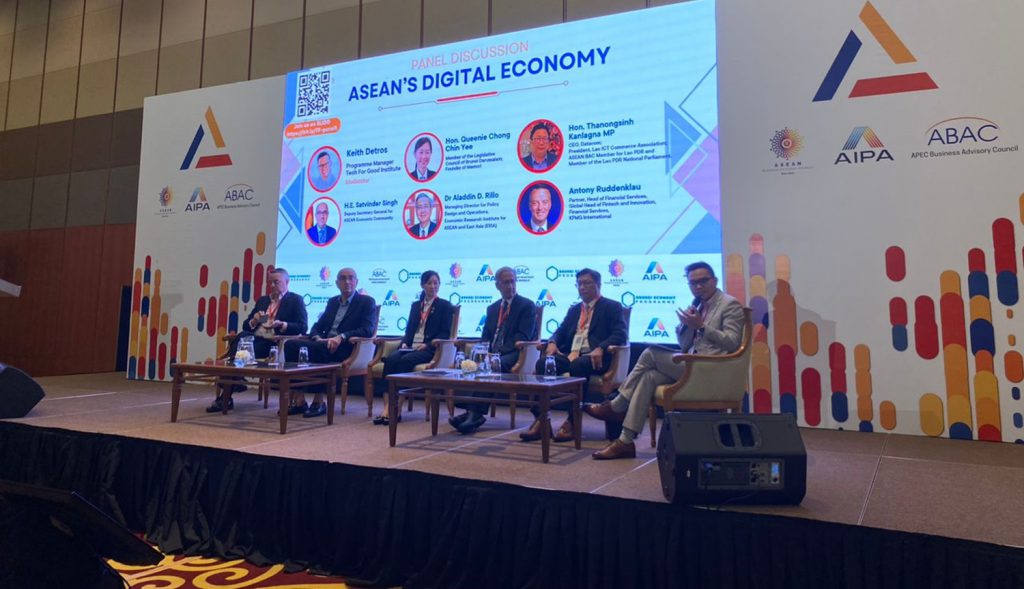
Preceding the panel discussion on Digital Transformation and Sustainability, H.E. Tan Sri Dato (Dr.) Johari bin Abdul, Speaker of the Dewan Rakyat of Parliament of Malaysia, delivered a keynote address on Building A Vibrant Digital And Cyber-Resilient ASEAN. H.E. Tan Sri emphasized the crucial role of parliamentarians in shaping the policies and frameworks governing ASEAN’s digital future. Parliamentarians can ensure the digital transformation of Southeast Asia by championing regulatory harmonization, prioritizing cybersecurity, promoting digital inclusivity, and investing in digital infrastructure. On the other hand, the panel focused on leveraging emerging technologies to drive digital transformation towards low-carbon and circular economies and promoting inclusive growth. Strengthening public-private partnerships was emphasized to adopt digital tools for achieving sustainable development goals. Hon. Mr. Putu Supadma Rudana from Indonesia contributed to this panel as one of the speakers.
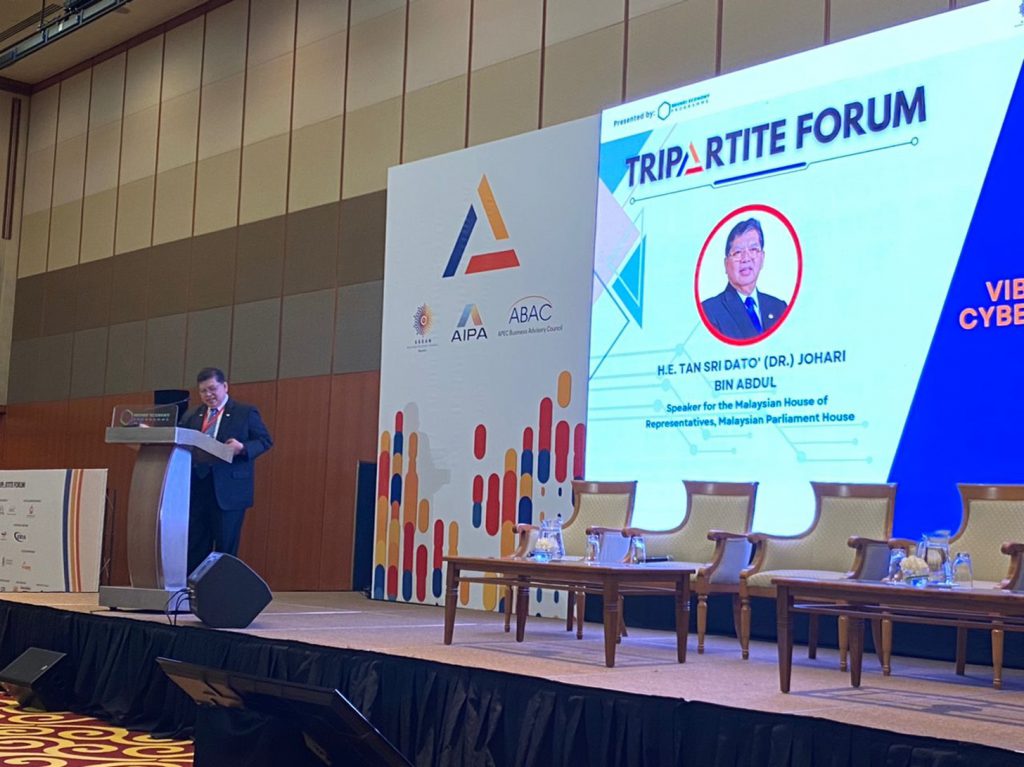
A courtesy meeting between the Speaker of Dewan Rakyat, Parliament of Malaysia, H.E Tan Sri Dato’ (Dr.) Johari bin Abdul and AIPA Secretary General, H.E. Ar. Siti Rozaimeriyanty Dato Haji Abdul Rahman was also held, where several key initiatives were discussed. H.E Tan Sri praised the AIPA Secretariat for organizing the Tripartite Forum and expressed interest in hosting the 2nd Tripartite Forum in Malaysia during the nation’s ASEAN Chairmanship and AIPA Presidency. He suggested inviting representatives from AIPA Observer countries to the event. The discussion also includes the topic of preparations for Malaysia’s AIPA Presidency for 2023-2024, focusing on critical issues such as climate change, food security, cybersecurity, and digital transformation. H.E. Tan Sri affirmed Malaysia’s support for AIPA’s initiatives on women’s political participation and leadership, as well as responsible investment in agriculture, food, and forestry. Additionally, he extended an invitation to the AIPA Secretary General to visit Malaysia for an initial meeting with the National Secretariat Team and parliamentarians.
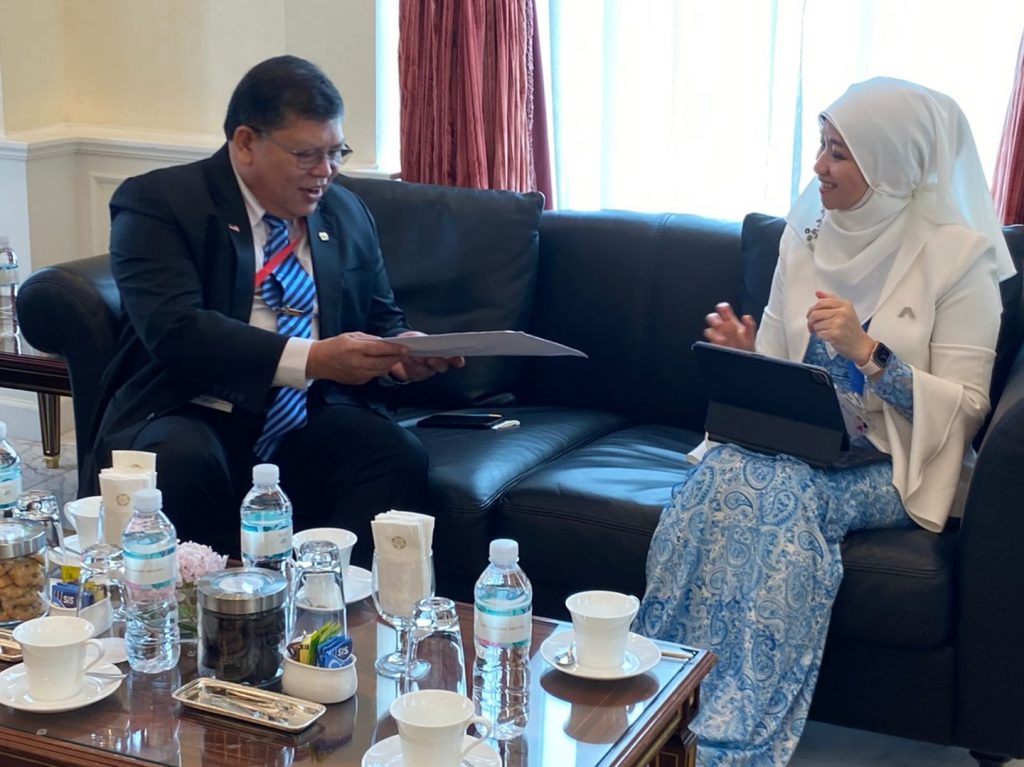
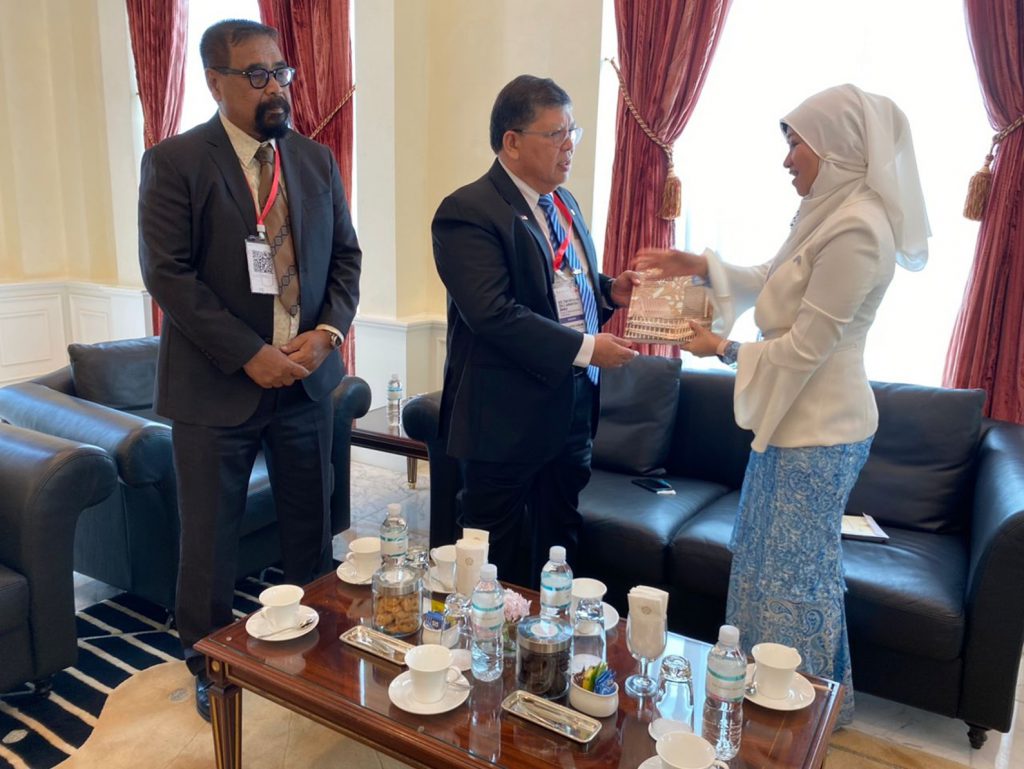
In the afternoon, H.E. Pengiran Dato Seri Setia Shamhary bin Pengiran Dato Paduka Haji Mustapha, Minister of Transport and Infocommunication of Brunei Darussalam, delivered a keynote address, followed by the launch of the AIPA Digital Law Library. Dr. Ly Chheng from Cambodia delivered remarks recognizing Cambodia’s initiative in establishing this digital resource.
Ching Ping Wong, Fortinet’s Head of Business Development for Southeast Asia, delivered a keynote address focusing on the regional threat landscape and emerging cybersecurity challenges. The panel stressed the importance of collaboration, policy development, capacity building, and workforce development in cybersecurity. It highlighted the need for cross-border collaboration and strategies to attract and retain cybersecurity talent. Hon. Azli bin Yusof of Malaysia was a key speaker, contributing to discussions on addressing existing gaps in cybersecurity skills and education.
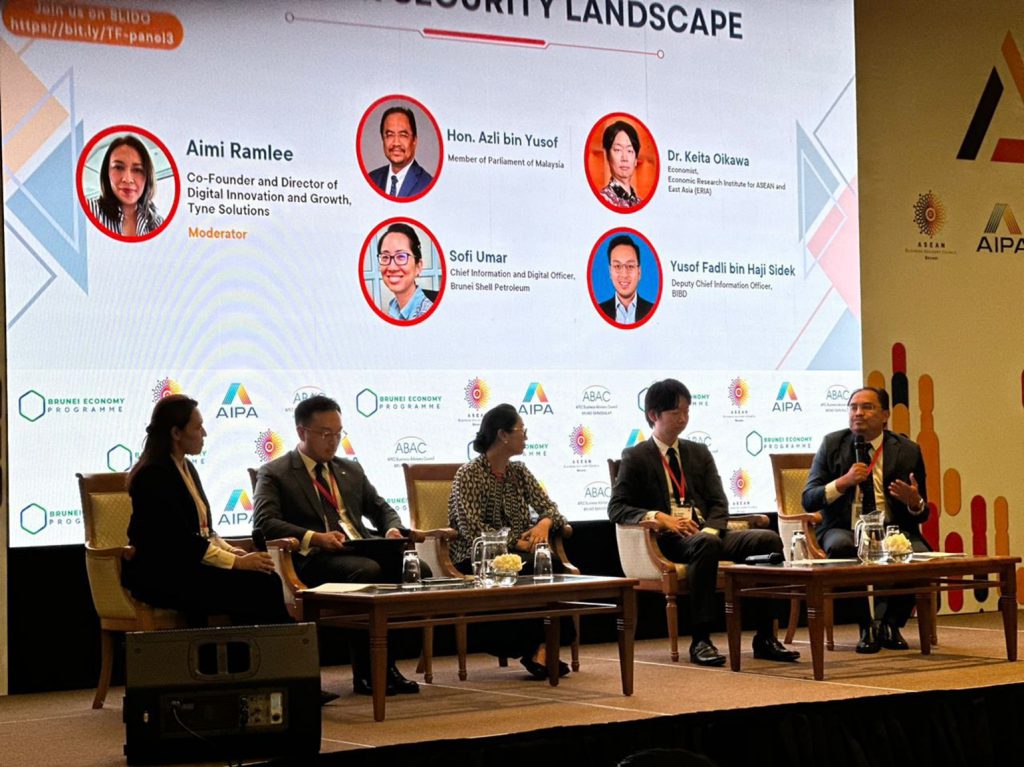
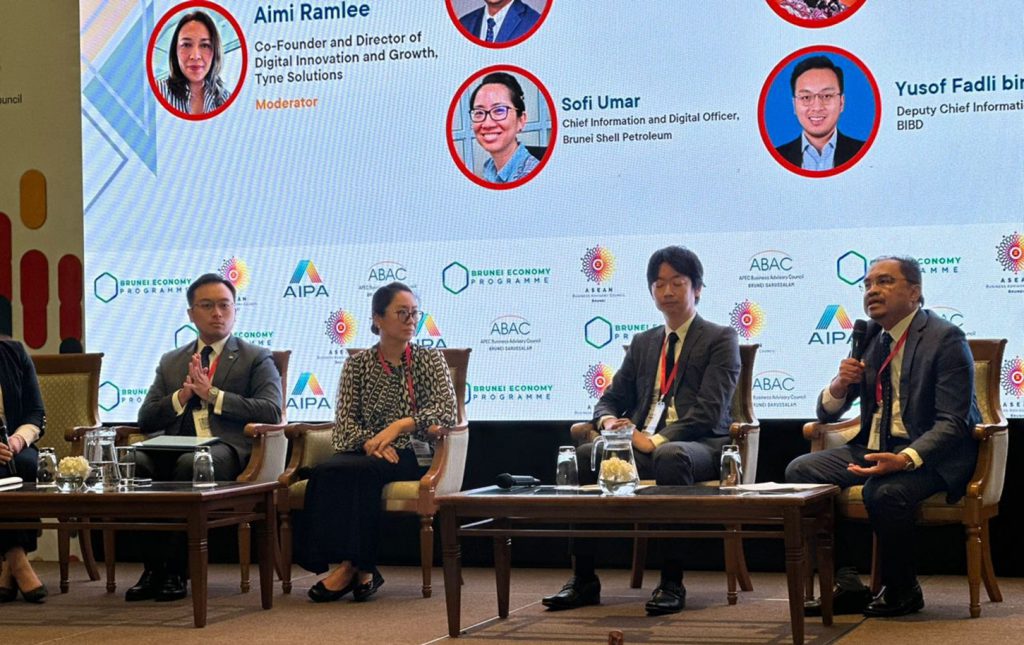
A special session, “Hacking is Easy,” showcased a live hack demonstration on a web server, illustrating how easily small vulnerabilities can be exploited, emphasizing the importance of robust cybersecurity measures.
The panel discussion on Building Public-Private Partnerships for Cyber Resilience discussed the critical need for ASEAN to develop a cohesive cybersecurity framework through collaborative efforts. It underscored the importance of public-private sector collaboration in establishing a resilient cybersecurity framework. Hon. Mr. Taopiphop Limjittrakorn from Thailand was a prominent speaker, highlighting strategies for strengthening cyber resilience. The Digital Economy Framework Agreement (DEFA) was a focal point during the forum, recognized for its potential to integrate digital policies, facilitate cross-border data flows, and strengthen cybersecurity measures across ASEAN. However, realizing DEFA’s potential requires more than policy agreements—it necessitates a whole-of-society approach.
The Tripartite Forum 2024, held in Bandar Seri Begawan, Brunei, concluded with a resounding commitment to building a vibrant digital economy in ASEAN. Delegates emphasized the importance of cyber resilience and shared prosperity, outlining strategies to enhance regional cooperation in cybersecurity, digital transformation, and economic integration. The forum fostered valuable dialogue among member states, industry leaders, and experts, setting a collaborative path forward to ensure that ASEAN’s digital economy remains robust, inclusive, and secure. This event marked a significant step toward a more interconnected and prosperous future for the region.
